Roofing is the one purchase that protects everything underneath it so the first question isn’t “What does it cost today?” but “What will it cost you over the life you plan to live in this house?” Asphalt vs Composite Shingles often look alike from the curb, yet they sit at opposite ends of the price-vs-performance spectrum.
One is the go-to for quick, budget-friendly re-roofs; the other is engineered to mimic luxury slate or cedar while shrugging off 130-mph winds for half a century. In the next few minutes we’ll zero in on the four levers that actually drive the decision up-front price, real-world lifespan, climate resilience, and resale impact so you can match the shingle to the life you expect from your roof, not just the quote in front of you.
Asphalt shingles dominate most neighborhoods because they’re affordable and easy to install. But composite shingles have carved out a serious space in the market, offering better durability, longer warranties, and high-end curb appeal that mimics slate or wood shake.
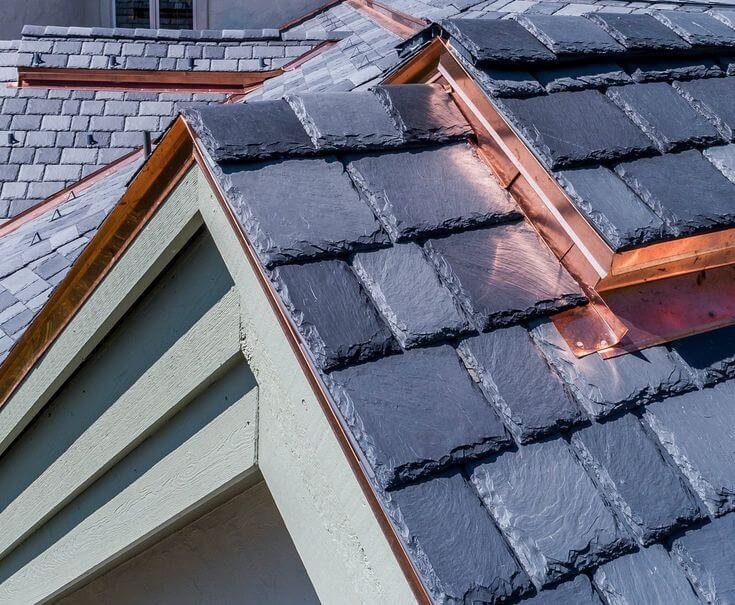
Asphalt vs Composite Shingles: A Head-to-Head Guide
| Aspect | Asphalt Shingles | Composite (Synthetic) Shingles |
|---|---|---|
| Material | Fiberglass mat + asphalt + mineral granules | Synthetic polymer, recycled plastics, fiberglass, sometimes slate/wood fibers |
| Appearance | Architectural style gives a dimensional look; luxury grades mimic slate. Limited color palette. | Molded from real slate or cedar shakes virtually indistinguishable from the natural material |
| Lifespan | 20–30 yrs (architectural) ≈ 25-28 yrs real-world | 40–50 yrs with proper installation |
| Weather Resistance | • Wind: ~110 mph (architectural) • UV coating slows fading but will degrade • Class A fire rating | • Wind: 130–190 mph ratings (Category 4 hurricane level) • Superior UV & impact resistance; less cracking |
| Maintenance | Moderate granule loss, occasional tab lifting | Low color may fade slowly but shingle integrity holds |
| Warranty | Standard 30-yr prorated; 50-yr non-prorated “enhanced” available if all components are from one manufacturer | Limited-lifetime material warranty (prorates after certain years); varies by maker |
| Cost (installed) | $4–9 / sq ft (architectural) ≈ $8 k–$18 k on a 2 000 sq ft roof | $12–20 / sq ft (slate-look) $14–18 / sq ft (cedar-look) ≈ $14 k–$28 k on a 2 000 sq ft roof |
| Installation | Faster, lower labor costs | Heavier, longer install → higher labor |
| Best For | Budget-conscious projects, quick re-roof | Premium curb appeal, long-term stay, harsh-weather regions |
Quick Decision Tips
- Tight budget or flipping a house? → Architectural asphalt.
- Hurricane zone or want “slate/cedar” look without the price? → Composite.
- Need the longest warranty? → Enhanced 50-yr asphalt system OR composite limited-lifetime.
“Expect to pay 3–4× more for composite than architectural asphalt.”
What Are Asphalt Shingles Made Of And How Do They Perform?
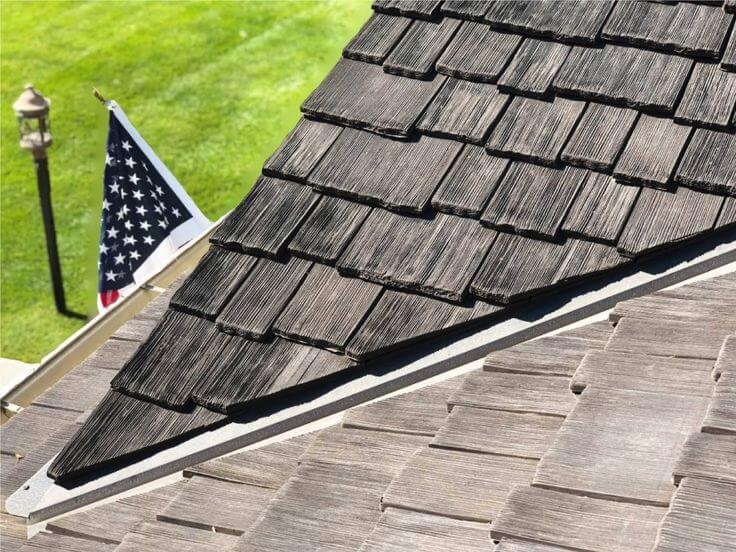
Asphalt shingles are America’s most popular roofing material and for good reason. They’re made with a fiberglass or organic mat at the core, coated in asphalt, then topped with ceramic granules. That combo keeps water out, adds color, and protects from UV rays.
But just because they’re popular doesn’t mean they’re the best for everyone.
Key Features of Asphalt Shingles:
- Affordable upfront: You’ll pay less per square foot than most other roofing options.
- Lightweight: Ideal for most residential roof structures without requiring reinforcement.
- Easy to install: Labor costs are often lower because most roofers know how to install them quickly.
Still, these benefits come with tradeoffs.
Drawbacks:
- They can dry out, curl, and crack in extreme heat or under constant UV exposure.
- They’re more vulnerable to wind uplift and may lose granules over time.
- Their lifespan ranges from 15 to 30 years less in harsh climates or poor attic ventilation.
Pro Tip: If you’re choosing asphalt shingles, look for architectural (dimensional) shingles instead of basic 3-tab versions. They last longer, look better, and perform better in wind and weather.
What Are Composite Shingles and Why Are They Getting So Popular?
Composite shingles (sometimes called synthetic shingles) look a lot like traditional asphalt, but they’re made from a blend of materials like recycled plastics, rubber, or polymers. Some brands mimic the look of slate or wood shake but without the weight or maintenance headaches.
Composite roofing is newer than asphalt, but it’s been gaining traction with homeowners who want something durable, attractive, and low–maintenance.
Key Features of Composite Shingles:
- Weather resistance: Many are rated for wind speeds of 110-130 mph or more.
- Longevity: Lifespans range from 30 to 50 years, sometimes even longer with premium brands.
- Sustainability: Many use recycled materials and are fully recyclable at end-of-life.
But they’re not without downsides.
Drawbacks:
- Higher upfront cost composite shingles can cost 2–3x more than standard asphalt.
- Limited installer availability in some regions.
- Some products may not have long-term field performance data (yet).
Expert Insight: Brands like DaVinci Roofscapes, Brava, and CertainTeed Symphony lead the market. Choose a composite product with strong manufacturer backing and Class A fire and Class 4 impact ratings.
How Much Do Asphalt and Composite Shingles Cost?
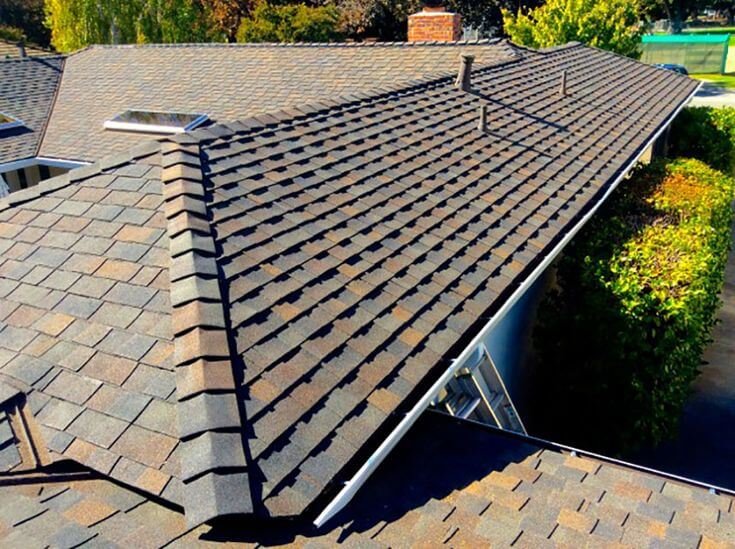
You also have to factor in labor, tear-off, underlayment, and disposal. (materials + labor, typical 2,000 sq ft roof)
| Grade / Style | Asphalt Shingles | Composite Shingles |
|---|---|---|
| Entry-level (3-tab or bargain grade) | $3.40 – $4.65 / sq ft ≈ $6.8 k – $9.3 k total | $2.50 – $7.50 / sq ft ≈ $5 k – $15 k total |
| Mid-range (architectural / builder–value grade) | $4.25 – $8.25 / sq ft ≈ $8.5 k – $16.5 k total | $7.50 – $12.00 / sq ft ≈ $15 k – $24 k total |
| Premium (luxury / architect grade) | $12.25 – $16.00 / sq ft ≈ $24.5 k – $32 k total | $10.00 – $18.00 / sq ft ≈ $20 k – $36 k total |
Key Takeaways
- Budget roof? 3-tab asphalt starts ≈ $3.40 / sq ft installed.
- Want slate/cedar look without slate budget? Mid-grade composite runs ≈ $7.50–$12 / sq ft—roughly double architectural asphalt.
- Top-tier luxury asphalt overlaps lower-end composite in price, but composite still wins on longevity (40–50 yrs vs 20–30 yrs).
So Composite Shingles And Asphalt which one’s cheaper?
If you’re only staying in your home for a few years, asphalt likely gives you the best short-term value. But if you plan to stay for decades, composite can offer better long-term ROI thanks to fewer replacements, lower maintenance, and stronger warranties.
Pro Tip: Always compare cost over lifespan. A $10,000 asphalt roof replaced every 20 years is more expensive than a $25,000 composite roof that lasts 50 years.
Which Is Easier to Install or Replace?
Ease of installation affects labor costs, project speed, and even future repair work.
Asphalt Shingles:
- Familiar to most roofers
- Fast install time (1–3 days)
- Easy to repair in sections
- Ideal for steep slopes or complex roof shapes
Composite Shingles:
- Takes longer due to specialty techniques and handling
- Not all roofers are trained in synthetic installation
- May need custom flashing or ventilation solutions
- Slightly heavier than asphalt (but lighter than slate or wood)
| Aspect | Asphalt Shingles | Composite Shingles |
|---|---|---|
| Ease of Installation | Quicker & simpler—lightweight, familiar to almost every roofer, and can be hand-nailed or gun-nailed in straight courses. A straightforward gable roof can be finished in a single day by an experienced crew . | More steps & precision—molded profiles often require layout chalk lines, special cutting tools, and manufacturer-specific starter / ridge accessories. Takes 25–40 % longer labor than asphalt . |
| Labor Cost | Lower—around $2 / sq ft for labor because the process is standardized . | Higher—labor can be 60 % of total job cost (≈ $8–9 / sq ft on a $14 / sq ft job) owing to the need for skilled installers . |
| Structural Prep | Rarely needs reinforcement; most homes already meet load requirements. | Still lightweight compared with real slate, but may trigger deck inspection if replacing 3-tab with thicker composite . |
| DIY-Friendly | Very for simple roofs—DIYers routinely re-roof small bungalows over a weekend . | Not recommended—cutting and aligning synthetic slate or cedar profiles without experience leads to visible pattern mismatches and voided warranties . |
| Replacement / Tear-Off | Fast tear-off and re-install; old asphalt comes off in large strips. | Same tear-off, but composite courses interlock or use hidden fasteners, so removal is slower and must be done carefully to avoid damaging adjacent shingles . |
Pro Tip: If you’re leaning toward composite, make sure you hire a roofer certified by the manufacturer. That’s the only way to guarantee proper installation and keep your warranty intact. A company like S&R General Construction NYC has experience with premium composite systems and follows strict install standards, so you get lasting performance without taking risks.
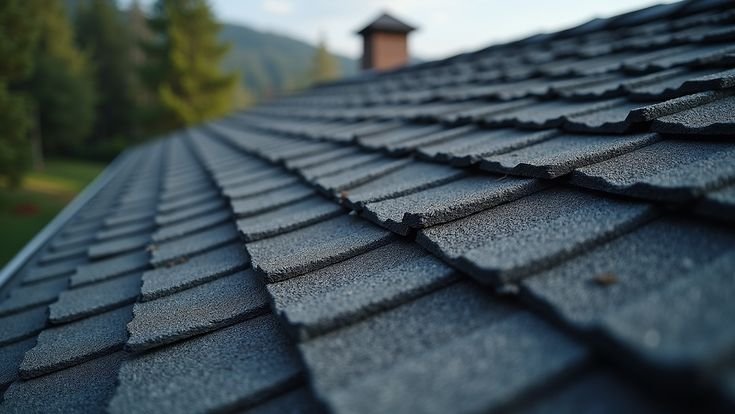
Which Roof Looks Better?
Looks aren’t everything but they matter when you’re investing in curb appeal.
Asphalt Shingles:
- Available in a wide range of colors
- Dimensional styles look more upscale than 3-tab
- Fades over time due to UV and weathering
Composite Shingles:
- Designed to replicate slate, cedar shake, or premium architectural styles
- Holds color better over time
- Deeper profiles create a richer, more authentic texture
| Feature | Asphalt Shingles | Composite Shingles |
| Color Retention | Fades over time | UV-resistant, holds color |
| Style Options | Basic to dimensional | Slate, shake, tile, custom |
| Curb Appeal Score | 6/10 | 9/10 |
If you live in a historic or upscale neighborhood, composite shingles may fit in better or even be required by your HOA.
How Do They Handle Heat, Hail, Wind, and Rain?
Performance under stress can make or break your roofing decision.
Asphalt:
- Moderate resistance to wind (up to 110 mph for architectural)
- Granule loss after hail or debris impacts
- Vulnerable to cracking and curling in extreme heat
Composite:
- Rated for winds up to 130–150 mph
- Often Class 4 impact rated (hail resistant)
- Less likely to warp or crack in heat
Pro Tip: Ask for an impact-rated shingle if you live in hail zones. Insurance companies may offer a discount for Class 4-rated composite products.
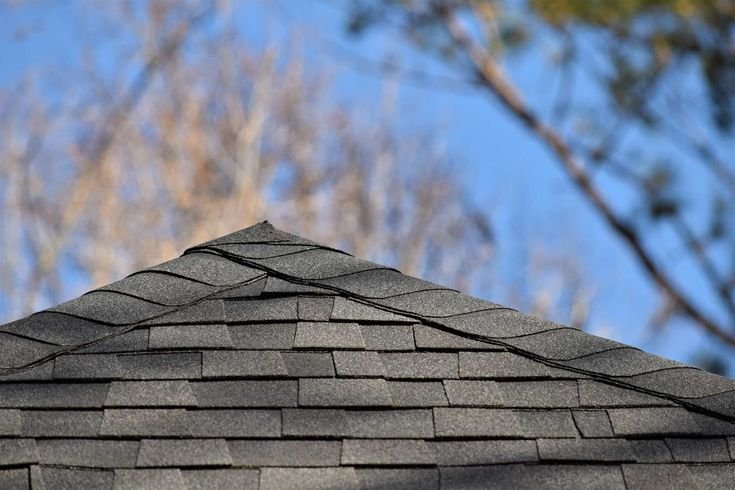
What About Environmental Impact?
If sustainability matters to you, composite shingles may have a slight edge.
Asphalt:
- Petroleum-based product
- Often ends up in landfills
- Shorter lifespan means more frequent replacements
Composite:
- Often made from recycled plastic or rubber
- Can sometimes be recycled again
- Long life = less waste over time
That said, some asphalt manufacturers now offer shingle recycling programs, especially in major cities.
Which Shingle Type Is Right for You?
Asphalt vs composite shingles isn’t a one-size-fits-all debate. Each has its strengths, and choosing the right one depends on your goals, your budget, and your local climate.
If you’re looking for something affordable, reliable, and quick to install, asphalt shingles are a solid, time-tested option. But if you want a roof that lasts longer, boosts your home’s curb appeal, and stands up to harsh weather, composite shingles are a smart long-term investment.
Here’s your next step: talk to a certified roofing contractor and get bids on both materials. Compare real numbers cost, lifespan, maintenance and see what makes the most sense for your situation. A little more upfront might save you a full replacement down the road.
If you’re in New York City or nearby, S&R General Construction NYC is a great place to start. Their team handles both asphalt and composite shingle systems and offers clear, honest advice based on what works best for your home, not just what’s trending. Reach out for a no-pressure inspection and expert recommendation you can trust.
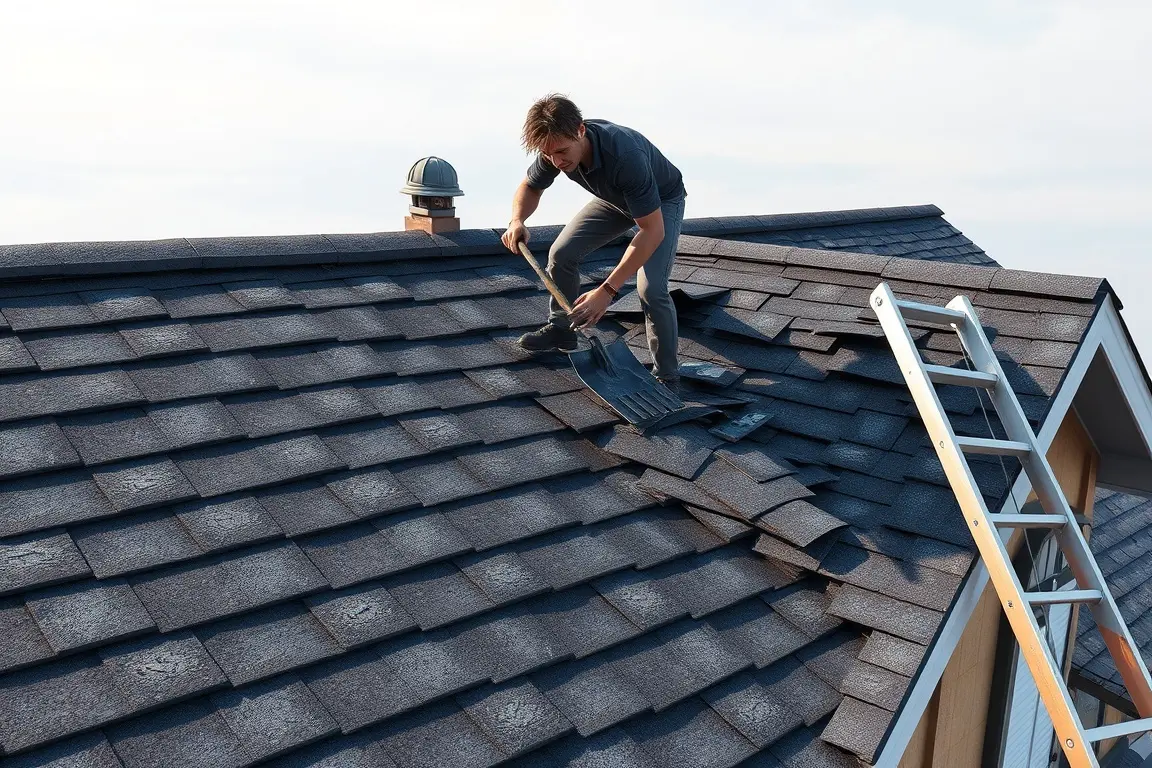
What are the advantages of composite shingles over asphalt?
| Benefit | What It Means in Real-World Terms |
|---|---|
| 2× Longer Life | Composite lasts 40–50 years vs 20–30 for asphalt, so you replace the roof once instead of twice . |
| Superior Weather Armor | Rated for 130–190 mph winds (Category 4 hurricane level) and better impact/UV resistance; asphalt tears at ~90 mph . |
| Authentic High-End Look | Molded from real slate or cedar—indistinguishable from the genuine material at street view . |
| Low Upkeep | Resist algae, moss, and pests; routine rinse and inspection is usually all that’s needed . |
| Greener Footprint | Made from recycled plastics & rubber, and can themselves be recycled; asphalt is petroleum-based and rarely recycled . |
| Better Fire & Impact Ratings | Often exceed Class A fire and UL 2218 Class 4 impact standards; most asphalt lines meet Class A but fall short on impact . |
| Stronger Warranty | Limited-lifetime material warranties (up to 50 years) vs asphalt’s typical 25-30 yr prorated coverage . |
Bottom line: you pay 3–4× more up front, but composite delivers double the life, half the maintenance, and a luxury look that asphalt simply can’t match.
What’s the typical cost difference between composite and asphalt shingles?
| Price Component | Asphalt Shingles | Composite Shingles |
|---|---|---|
| Materials only | $0.80 – $3.50 / sq ft (3-tab → luxury) | $2.50 – $18 / sq ft (bargain → architect grade) |
| Materials + Labor (installed) | $3.40 – $5.95 / sq ft on average, translating to $5.8 k – $10 k for a 1,700 sq ft roof | $7.50 – $13 / sq ft installed, or $15 k – $26.5 k for a 2,500 sq ft roof |
| Rule-of-thumb gap | ~$3–$6 / sq ft less than composite | ~2× to 4× more expensive than asphalt |
FAQ: Asphalt vs Composite Shingles
Which is better: asphalt or composite shingles?
That depends on what you need. Asphalt shingles are cheaper upfront and easier to install. They work well for budget-focused projects or if you plan to move in the next 10–15 years. Composite shingles last longer, resist weather better, and often look more premium. If you’re planning to stay in your home long-term, they usually offer more value over time.
Do composite shingles last longer than asphalt?
Yes, by a lot. Most asphalt roofs last 15 to 30 years. Composite shingles can go 40 to 50 years or more, depending on the brand and installer. If long life is your top priority, composite is the winner.
Are composite shingles more expensive than asphalt shingles?
Yes. Composite shingles typically cost 2 to 3 times more than asphalt both for materials and installation. But they also last nearly twice as long, so the lifetime value often balances out if you’re staying in the home.
Do composite shingles look better than asphalt?
In most cases, yes. Composite shingles are made to mimic slate, wood shake, or tile, and they have deeper textures and richer colors that hold up longer. Asphalt shingles can still look good, especially architectural ones but they tend to fade over time.
Which shingles handle hail or wind better?
Composite shingles usually perform better in tough weather. Many are Class 4 impact rated and can resist hail and flying debris. Wind resistance is also stronger often up to 130–150 mph, compared to 110 mph for high-end asphalt.
Can any roofer install composite shingles?
Not always. Composite shingles need special handling and install techniques. To get the full warranty and best results, hire a contractor certified by the product manufacturer. In NYC, S&R General Construction NYC is experienced with both asphalt and composite installs and can guide you to the right fit for your roof.
